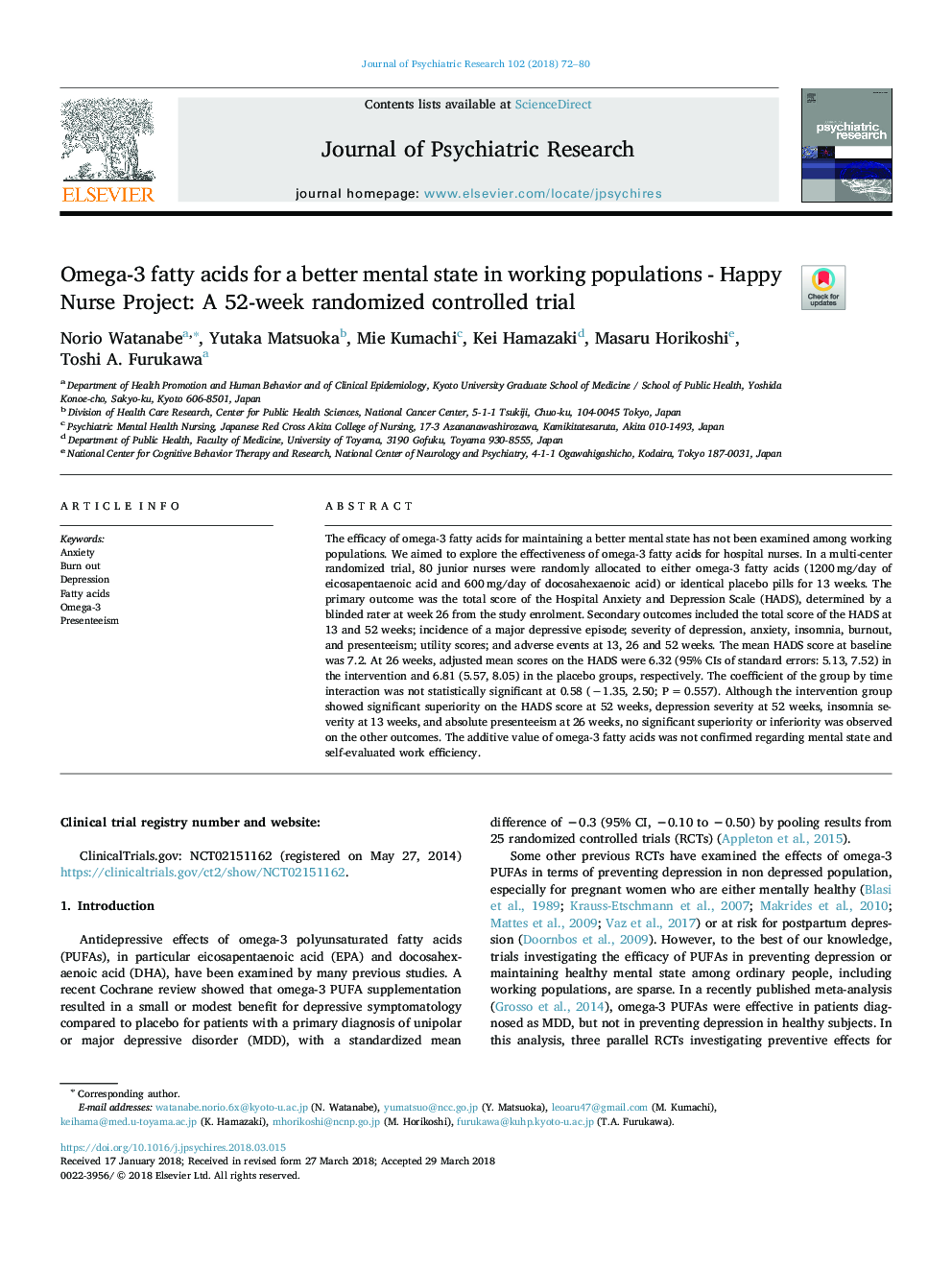| Article ID | Journal | Published Year | Pages | File Type |
|---|---|---|---|---|
| 6799525 | Journal of Psychiatric Research | 2018 | 9 Pages |
Abstract
The efficacy of omega-3 fatty acids for maintaining a better mental state has not been examined among working populations. We aimed to explore the effectiveness of omega-3 fatty acids for hospital nurses. In a multi-center randomized trial, 80 junior nurses were randomly allocated to either omega-3 fatty acids (1200â¯mg/day of eicosapentaenoic acid and 600â¯mg/day of docosahexaenoic acid) or identical placebo pills for 13 weeks. The primary outcome was the total score of the Hospital Anxiety and Depression Scale (HADS), determined by a blinded rater at week 26 from the study enrolment. Secondary outcomes included the total score of the HADS at 13 and 52 weeks; incidence of a major depressive episode; severity of depression, anxiety, insomnia, burnout, and presenteeism; utility scores; and adverse events at 13, 26 and 52 weeks. The mean HADS score at baseline was 7.2. At 26 weeks, adjusted mean scores on the HADS were 6.32 (95% CIs of standard errors: 5.13, 7.52) in the intervention and 6.81 (5.57, 8.05) in the placebo groups, respectively. The coefficient of the group by time interaction was not statistically significant at 0.58 (â1.35, 2.50; Pâ¯=â¯0.557). Although the intervention group showed significant superiority on the HADS score at 52 weeks, depression severity at 52 weeks, insomnia severity at 13 weeks, and absolute presenteeism at 26 weeks, no significant superiority or inferiority was observed on the other outcomes. The additive value of omega-3 fatty acids was not confirmed regarding mental state and self-evaluated work efficiency.
Related Topics
Life Sciences
Neuroscience
Biological Psychiatry
Authors
Norio Watanabe, Yutaka Matsuoka, Mie Kumachi, Kei Hamazaki, Masaru Horikoshi, Toshi A. Furukawa,
